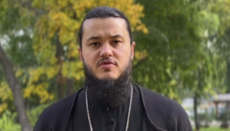Research: Religious people live longer than non-believers

In search of the key to 'successful ageing', researchers have analysed life expectancy in Catholic monasteries in Austria and Germany.
In a study conducted at the Institute for Demography of the Austrian Academy of Sciences, scientists concluded that religious people live on average five years longer than non-believers.
The study aimed to research the key determinants of health and longevity. Study leader Mark Luy believes that regular daily routine, diet and prayer have a positive effect on the health of monks.
In search of the key to "successful ageing", the researchers analysed life expectancy in monasteries in Austria and Germany. A total of 1,158 religious (622 women and 536 men) from 16 different orders in Germany and Austria took part in the first wave of the survey.
The researchers concluded that religious women lived "only" one year longer compared to religious men. This conclusion came as a shock to the scientists because it contradicts the existing fact that women's life expectancy in the world is much longer than the average life expectancy of men.
That is why the head of the study stated that if all men and women lived according to monastic habits (routines, food and prayer), the difference in average life expectancy between them would shrink to only one year.
According to Marc Luy, that shows that these are not biological factors, but aspects that can be influenced.
As earlier reported, British scientists found that believers are happier than atheists.





